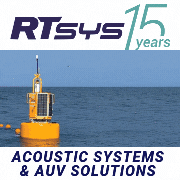Four innovative projects capable of putting Britain at the forefront of international efforts to develop renewable energy have become the first initiatives to benefit from a potential £1.1billion fund established to help reduce greenhouse gas emissions.
The projects were awarded money by the Energy Technologies Institute (ETI), a unique public-private partnership between global industries and the UK Government set up to help meet UK CO2 targets and develop the infrastructure capable of delivering cleaner, affordable and secure energy on a mass scale.
{pagebreak}
Three of the projects will focus on designing cutting edge offshore wind turbine technology, while the fourth will demonstrate a new commercial scale tidal turbine.
ETI’s Chief Executive Officer Dr David Clarke said the initiatives had significant international potential. “Britain is uniquely placed to develop and use these technologies given the mix of wind and wave which impact on our islands.
“Add to those factors the skills and market access which these projects bring together, and we have the potential which could lead to the deployment of new, lower-cost and more effective technologies capable of generating renewable energy on a mass scale.
“Rapid, widespread deployment is critical if we are to effectively address the challenges of climate change not only in Britain but around the globe. We believe that the initiatives represent and important step forward.”
The four projects to win funding as part of the first round of ETI support were announced at a briefing in London hosted by Dr Clarke along with the Institute’s chairman Sir Rob Margetts, Science and Innovation Minister Lord Drayson and Lord Hunt, Minister for Sustainable Development and Energy Innovation.
The schemes include Project Nova, a UK-based consortium led by Guildford energy specialists OTM Consulting which aims to assess the feasibility of a unique wind turbine with a pair of giant vertical wings; Project Helm Wind, a consortium including E.ON Engineering, Rolls-Royce and BP which proposes a more reliable offshore wind farm; Project Deepwater Turbine, a consortium led by Netherlands-based Blue H Technologies which wants to develop a floating offshore wind turbine; and Project ReDAPT, a wave turbine scheme involving European energy giants EDF Energy and E.ON among others.





















